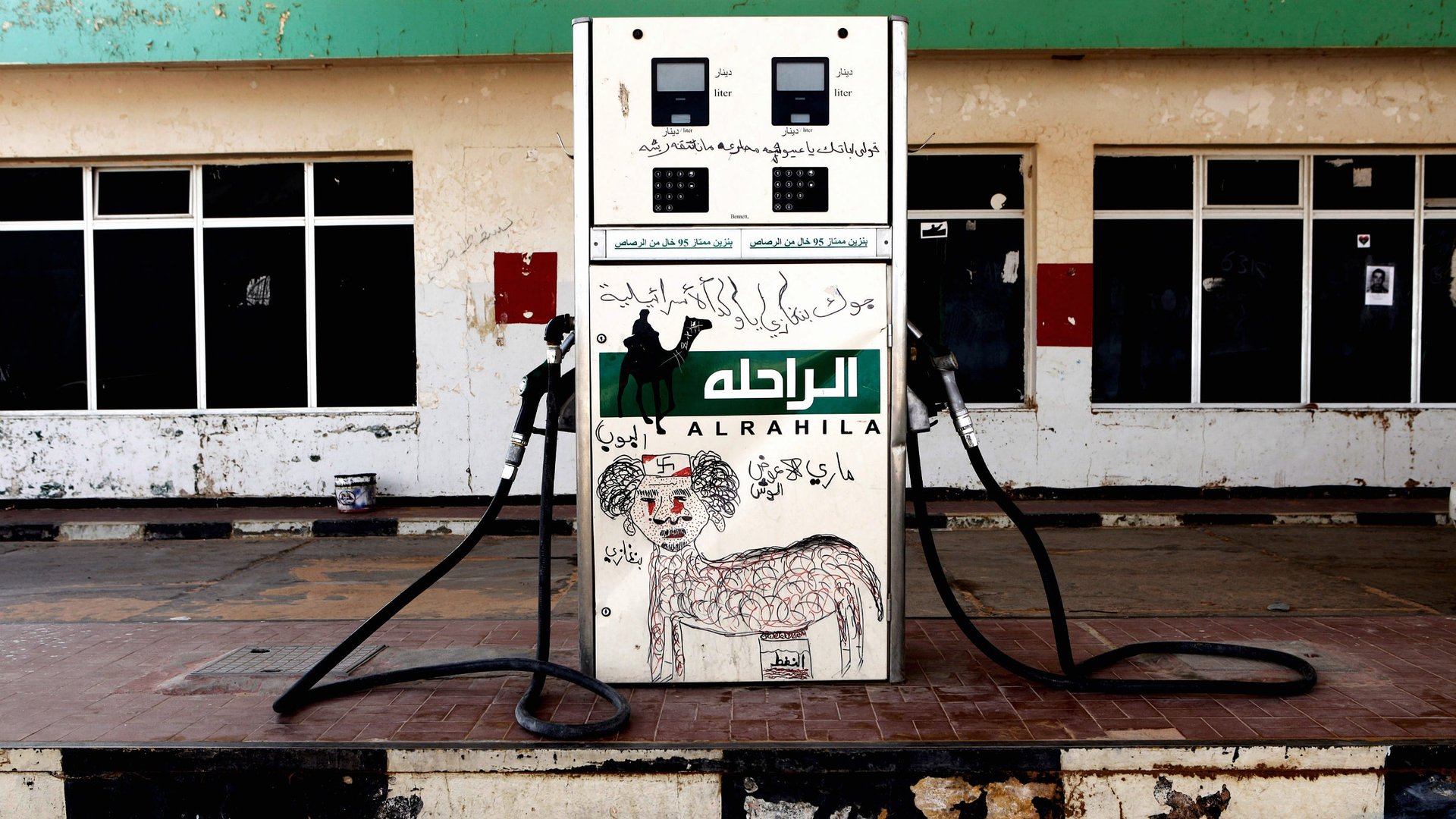Want to head Libya’s central bank? You can apply online
Aspiring central bankers, it’s time to update your c.v.’s. The Central Bank of Libya is hiring.


Aspiring central bankers, it’s time to update your c.v.’s. The Central Bank of Libya is hiring.
Last week, Libya’s governing body, the General National Congress (GNC) announced it’s accepting online solicitations for the next CBL governor and deputy governor. And the application couldn’t be more straightforward:
These vacancies will be open between Sunday, July 22 and Wednesday, August 7, 2013. Applicants must submit their personal resume and fill-in the special application form prepared by the Committee which is published on its official website at www.gnc.gov.ly.
Applications are received during working hours at the Committee’s Headquarters at Palace No.19, Hospitality Palaces, GNC Headquarters. Applications can also be submitted by email to www.gnc.gov.ly.
So what happened to the current CBL governor and deputy governor, Saddek Elkaber and Ali Elhebri? It’s unclear if they were sacked or resigned, but despite Libya’s healthy economic indicators, a closer look into the management of the country’s monetary policy reveals that it might be time for a change. And the questions on the application form want to know what you think those changes should be.
In a nutshell, Libya’s biggest economic challenge is its heavy reliance on hydrocarbon, or oil and gas. Around 65% of GDP and 95% of fiscal revenue comes from the hydrocarbon sector, which is the main supplier of the country’s foreign reserves. The revenue from these resources was the country’s saving grace under the long-time rule of former dictator, Mummar Gaddafi; and despite the disruptions the near-daily attacks of militia violence have had on oil and gas output, Libya’s economy has still been going surprisingly strong: it’s forecasted to grow by 17% this year, and by 7% annually between 2014 and 2017. And that growth is mainly driven by the assumption that Libya will continue to pump roughly 1.6 millions of barrels of oil each day, as it did before Gaddafi’s ouster.
So why does the CBL want to know if the prospective candidate is “satisfied with the running of the current reserves in the bank”?
There’s no doubt that the foreign currency pumped into Libya’s Central Bank in exchange for barrels of oil pumped out of Libya has given the Bank some breathing space in its monetary policy. But the question is: for how much longer? Libya has an essentially pegged exchange rate that has served it well in smoothing out any sudden drops in oil price (since the US dollar and price of oil typically move in opposite directions), but because oil is an exhaustible resource (BP estimates that Libya has 46 billion barrels of oil remaining) and there is a global push to move towards alternate forms of energy, only by diversifying the economy will Libya be able to support its currency after either the supply or demand for oil runs dry. And although these are not immediate concerns, there is almost nothing else beyond oil that Libya currently has to offer.
What Libya needs is economic growth in non-hydrocarbon sectors, but that’s difficult to do without financing, and that’s the roadblock Libya’s private sector is now facing. Which brings us to Libya’s next big monetary challenge, and another question. Because the central bank governor is in charge of overseeing banking regulation, the application wants to know how one proposes reforming the banking sector, which it refers to as the “locomotive of the economy.”
The Libyan government recently banned interest rates in a push to move towards a more Shariah-compliant banking sector, and as a result, it’s becoming nearly impossible to access capital. Under pressure from Islamist interest groups, the law was quickly passed on a moral platform, with no clear guidelines or financial forethought. Now there’s no monetary incentive to lend money, and banks have just stopped issuing loans altogether. If the CBL thinks the current banking system is the economy’s locomotive, then under the currentregulations, Libya’s economy is going to soon run out of steam.
According to the latest IMF Article IV report published in May 2013, Libya’s annual budget is prepared within the framework of short-term policies and has “little reference” to long-term objectives. Private sector growth takes time, and if Libya continues to remain dependent on oil and gas revenue alone, sooner or later, the country’s financials will seriously suffer. But the question that remains, is how exactly one should go about tackling these challenges, and one of the last questions on the application asks, “if you are selected for the position, what are the first three steps you will implement during your first year on the post?” That’s a tough one, but if you have any ideas, feel free to submit them via the GNC online application before the deadline.